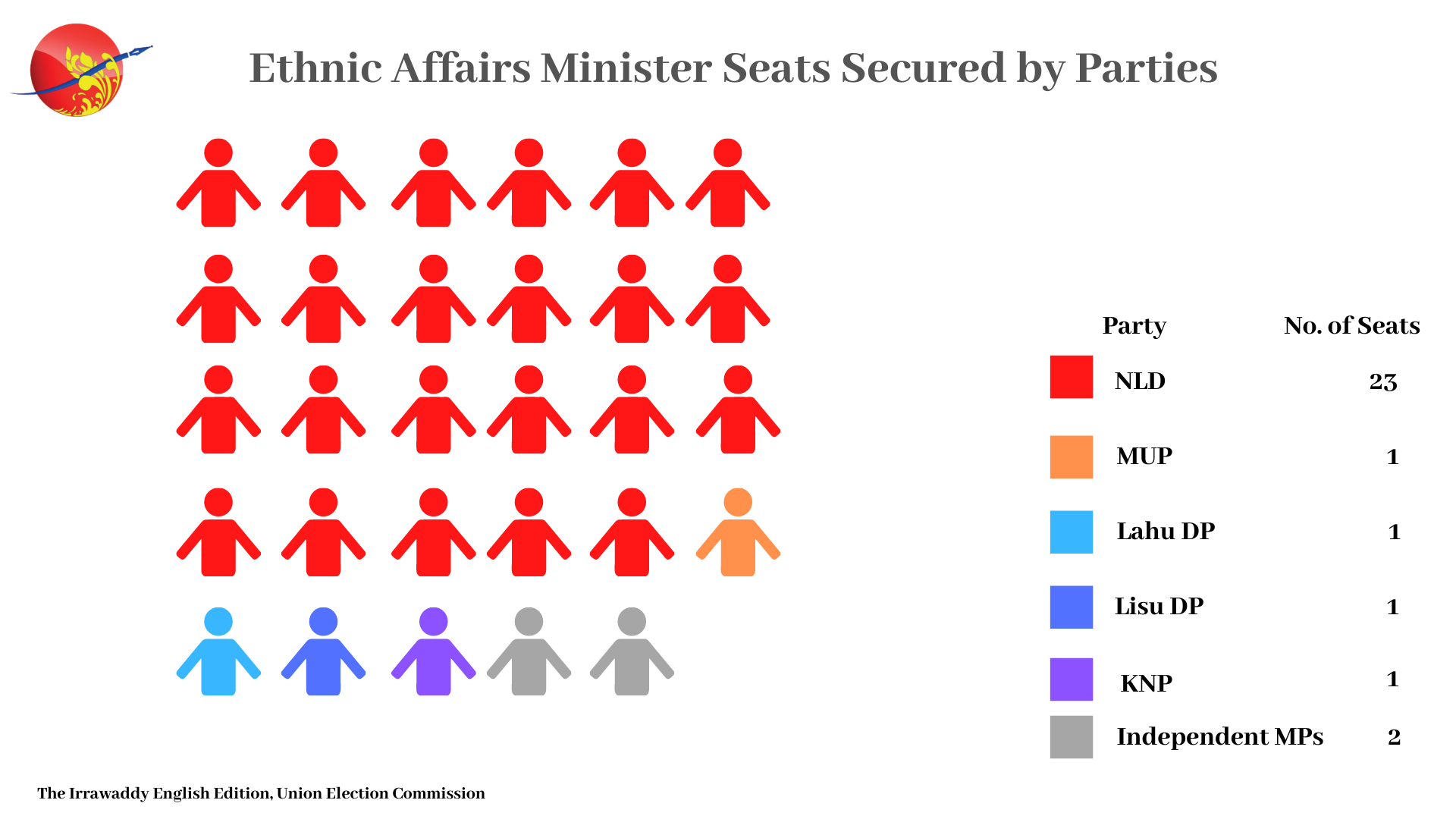National League for Democracy (NLD) candidates won 920 (or 82 percent) of the total 1,117 elected seats up for grabs nationwide in the Nov. 8 general election, including seats in both houses of Myanmar’s bicameral Parliament and the state/regional parliaments, as well as ethnic affairs minister posts, giving it another landslide victory.
Myanmar’s electoral body, the Union Election Commission (UEC), finalized the results of the election on Sunday. When their next terms begin, the country’s legislatures will include representatives of 19 political parties and four independents.
A total of 5,639 candidates, including both independents and representatives of 87 political parties, contested the election. Voting was canceled in six areas, including parts of Rakhine and Shan states.
The NLD saw its public support grow this year, adding 61 seats in all parliaments (it won 859 seats in total in 2015) despite the fact that the COVID-19 epidemic prevented candidates from campaigning widely. The NLD defied predictions that it would struggle to win enough seats to form a government amid criticism of its poor performance and claims that its popularity had declined, especially in ethnic states.
The main opposition party, the Union Solidarity and Development Party (USDP), won 71 seats, or 6.4 percent of all elected seats (down from 117 in 2015). The USDP lost many of its seats to the NLD and the ethnic parties.
Several big parties that fielded candidates nationwide failed to win a single seat.
Among the 48 ethnic parties that contested in the states and regions, 17 won seats, with the Shan Nationalities League for Democracy (SNLD) winning the most (42 seats, mostly in Shan State constituencies). The SNLD also saw its support increase from 2015, when the party won 40 seats.
However, it was not able to prevent the NLD from winning a majority in the Shan State parliament this year; the ruling party wrested control from the USDP, which won a majority there in 2015.
In Rakhine State, where the election were canceled in nine whole townships and parts of four other townships, the popular Arakan National Party (ANP) won a majority in the state parliament, making it the only ethnic party to secure more seats than the NLD in the state.
Both domestic and international election observers said they found no major irregularities at polling stations and that the electoral process was free and transparent, based on evaluations at polling stations. They also said COVID-19 prevention measures were implemented properly.
Last Thursday, the Arakan Army (AA), which is currently fighting the Myanmar military (or Tatmadaw) in Rakhine, called for by-elections in the state no later than Dec. 31. The military also agreed to the AA’s statement calling for cooperation on security for the election in Rakhine State.
Although the NLD won 82 percent of elected seats, the structure of Myanmar’s legislatures, as laid out in the Constitution, reserves 25 percent of seats in every parliament for the military.
Therefore, the NLD’s share of seats in the Union Parliament, where the key legislation is created or amended, will be 62 percent, as the legislature’s 642 seats include 166 held by the military.
The USDP will account for 5 percent (33 seats) and the SNLD will hold 3 percent (15 seats) of seats in the Union Parliament. Ten other parties (two Rakhine parties, two Kachin parties, and one each representing the Ta’ang, Mon, Pa-O, Kayah, Wa and Zomi) will account for around 5 percent (32 seats) and the military will hold 25 percent.
Political Parties’ and Independent Candidates’ Victories in the 2020 Election


You may also like these stories:
NLD Reaches Out to Myanmar’s Ethnic Parties Seeking Federal Union and an End to Civil War
Military-Backed USDP Leaders Defeated by NLD in Myanmar Election
Myanmar Votes for a Continued Peaceful Transition

















